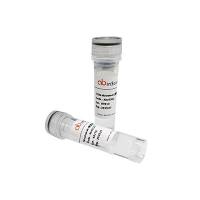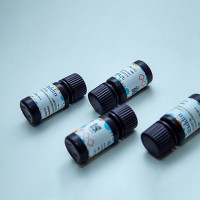Gene Expression Analysis by CD-RT-PCR Eric de Kant
With the introduction of polymerase chain reaction (PCR), analysis on even minute amounts of DNA and RNA from biological samples became practicable. Conventional methods of mRNA analysis are often not sensitive enough for detection of low-abundance transcripts or broad examination of gene expression in small amounts of RNA. Quantitative mRNA characterization by reverse transcription (RT) of RNA and subsequent PCR (RT-PCR) is, however, compared to qualitative RT-PCR detection of RNA, more complicated because of two features inherent in in vitro ampllfication. First, during the exponential phase, minute differences in a number of variables can greatly influence reaction rates, with substantial effect on the yield of PCR products, Second, as a consequence of the consumption of reaction components and generation of inhibitors, the amplification enters a plateau phase. At this point, the reaction rate declines to an unknown level. Another source of errors in quantitative RT-PCR analysis lies in the determination of the amount of RNA to be analyzed for each sample. In small samples, the total amount of RNA may even be beyond the limit of detection. The sample loading problem can be solved by presenting the level of expression of the gene of interest in reference to a constitutively expressed gene. In PCR, this can be done by the simultaneous amplification of two different genes in one reaction vessel, which is called differential PCR (1 ). However, in many cases a quantitative PCR assay is desired that is internally controlled both for errors in comparison between samples and for the efficiency of the amplification reaction. To this end, a technique was devised that combines competitive PCR and differential RT-PCR by co-amplification of two genes and their corresponding competitive templates (2 ). This chapter describes the working procedures for that complete assay, called competitive and differential RT-PCR (CD-RT-PCR) and concomitant techniques.
![预览]()






